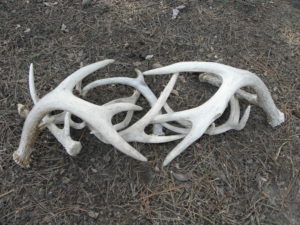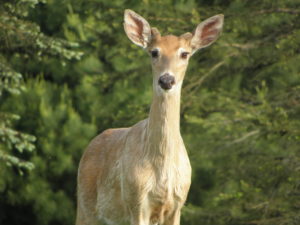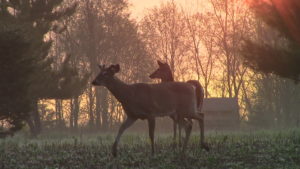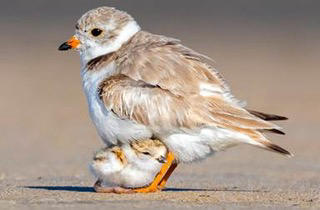You Might be an Avid Hunter
By Glen Wunderlich
It’s time to get ready for deer hunting. Yet, for keenly eager hunters the fact of the matter is that the time to prepare is perpetual. Here are a few symptoms that cause deer hunters to earn the moniker of avid hunter.
You might be an avid hunter, if you search for antler sheds after the final season has ended. The practice of shed hunting can be so intense, some states now have seasons. For example, in Montana Wildlife Management Areas it is illegal to enter a state WMA prior to its formal opening day. From Feb. 1 to April 15, in Utah you must have an antler-gathering certificate on your person while collecting shed antlers or horns. Other states have restrictions, as well, but in Michigan, anyone is still able to hunt sheds at any time without any formal requirements. The art of finding them has benefits such as learning where some of the big bucks were, and more importantly, which bruisers made it through the hunting season.

Michigan Shed Antlers
You might be an avid hunter, if you scout for deer. Cruising the back roads and two-tracks in twilight hours with good binoculars is an enjoyable pastime even for non-hunters. Who doesn’t like to see whitetails when they haven’t been spooked and are going about their daily routines of survival?

Michigan Springtime Buck

Early Morning Whitetails
Antlered bucks are another spectacle altogether and the avid hunter searches them out from afar. A window mount and quality spotting scope allows one to peer into cover, and tests one’s ability to spot not only movement, but horizontal backbone lines and colors otherwise unseen.
You might be an avid hunter, if you take advantage of game cameras as part of your scouting efforts. It wasn’t long ago, that film cameras were inside of trailcams; they’re now as popular as VHS tapes. The sky’s the limit and high-end game cams now use wireless technology to transmit photos and videos to smart phones and computers. It may seem like a lazy person’s tactic to use cameras for scouting, but they certainly minimize, if not eliminate the potential to stink up the woods with one’s presence. For some the biggest challenge is to leave the cameras alone for any extended times.
You might be an avid hunter, if you’ve ever pulled weeds from you food plots.

Brassica Plot a Month after Planting
Guilty as charged! In some states, hunting in conjunction with food plots or even farm crops is illegal. But, in Michigan, where an over-abundance of deer remain, growing food for wildlife is big business. Oh how excited I was to see the little brassica plants and sugar beets emerge, after planting before the month-long dry spell of July!
You might be an avid hunter, if your deer blind is warmer than your bedroom. Deer blinds are as varied as guns and gear, but nothing has spurred their growth as Michigan’s relaxed rules allowing elevated-platform hunting with firearms. Although some folks may frown on them, because of the decided advantage they give hunters, their popularity has many virtues. Being elevated is self-explanatory but hunting in the bitter cold of December, when most hunters have given up on the idea, has produced some magnificent bucks for those seizing the opportunity. If a hunter cannot be comfortable and is squirming around in a futile effort to keep warm, he’ll either stay home or go home empty handed after spooking the game. And, there’s no better way to introduce youngsters to the deer hunting tradition than to take them along for an adventure.
Getting ready? For the avid hunter, it never ends.







